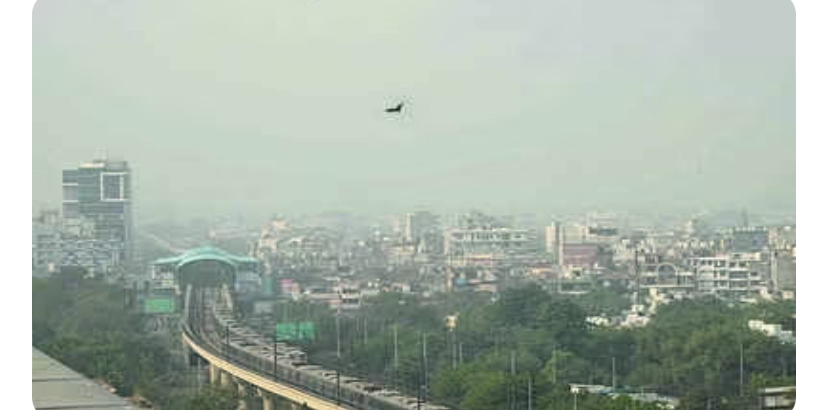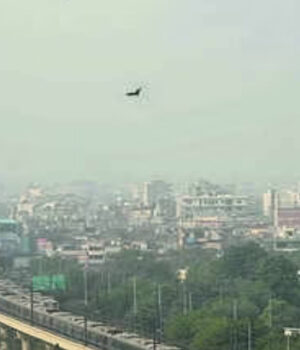In Noida and Ghaziabad, there was a marginal improvement in air quality following rainfall, but it still lingered in the ‘poor’ category on Monday. Noida’s Air Quality Index (AQI) dropped from Sunday’s 277 to 243, while Greater Noida recorded 255, and Ghaziabad stood at 216.
Specifically, the air monitoring station in Noida’s Sector 62 reported the highest AQI at 254, followed by Sector 1 with 249, and Sector 116 at 227 – all falling within the ‘poor’ category. Greater Noida’s Knowledge Park V station registered an AQI of 280, and Knowledge Park III recorded 230, both in the ‘poor’ category. In Ghaziabad, Loni had the highest AQI at 275, followed by Vasundhara at 241, both categorized as ‘poor.’ Meanwhile, Sanjay Nagar recorded an AQI of 188, and Indirapuram had a reading of 164, classified as ‘moderate.’
Despite the rainfall, the central government’s System of Air Quality and Weather Forecasting and Research (SAFAR) predicts that air quality is likely to remain in the ‘poor’ category on Tuesday due to slow wind speed. The prevailing surface wind is expected to come from the northwest direction in Delhi-NCR, with a speed ranging from 4 to 10 kmph. Residents can anticipate moderate to dense fog in the morning, gradually giving way to a clear sky later in the day.
In a notable development, a resident from Noida’s Sector 77 filed a Right to Information (RTI) application with the Central Pollution Control Board (CPCB), seeking information on the contribution of biomass burning to overall pollution in Delhi-NCR during winter. According to the CPCB, data from the Decision Support System of the Indian Institute of Tropical Meteorology (IITM), Pune, reveals that the average contribution of biomass burning to PM2.5 in Delhi was 14% from October 22 to November 29, 2023. This figure compares to 11% during the same period in 2022 and 15% in 2021.
Amit Gupta, the resident behind the RTI application, highlighted that while biomass burning is often blamed for deteriorating air quality, the data suggests other contributing factors. Gupta emphasized the need for the government to address issues such as enforcing guidelines at construction sites, industries, and managing traffic to combat pollution effectively.











